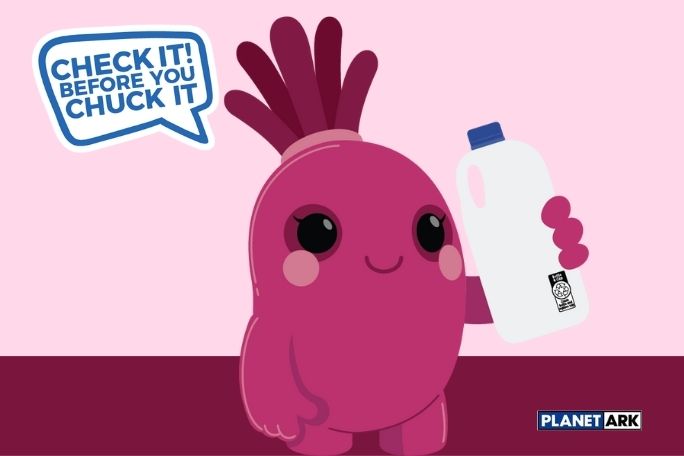Lesson summary
Government and industry have the goal of having 100 per cent recyclable, re-usable or compostable packaging by 2025. But with hundreds of recycling labels out there, getting recycling right can be confusing – even recycling gurus get it wrong. The Australasian Recycling Label (ARL) is therefore designed to remove recycling confusion by explaining how we should dispose of and recycle different types of packaging.
So how familiar are students with the label? What do each of the different directions mean? And is the ARL more trusted than other so-called recycling labels?
In this lesson students explore prior knowledge about recycling and the ARL, working together to research and collaboratively curate this information. Students then engage with a flipped classroom pedagogical approach, using what they have discovered to become the teachers and spread the word about the ARL through a quiz and teaching materials.
Learning intentions:
Students will...
- reflect on their knowledge of the ARL and recycling practices; and
- begin to advocate for the ARL and informed recycling practices in their sphere of influence.
Success criteria:
Students can...
- conduct independent research to explore their understanding of the ARL
- undertake a flipped classroom pedagogy to inform others about the ARL and how to recycle.
Lesson guides and printables
Lesson details
Curriculum mapping
Australian Curriculum content descriptions:
Year 5 Science:
- Scientific knowledge is used to solve problems and inform personal and community decisions (ACSHE100)
Year 6 Science:
- Scientific knowledge is used to solve problems and inform personal and community decisions (ACSHE083)
Syllabus outcomes: ST3-7PW
General capabilities: Literacy, Information and Communication Technology (ICT) Capability, Critical and Creative Thinking, Personal and Social Capability, Ethical Understanding.
Cross-curriculum priority: Sustainability
Relevant parts of Year 5 Science achievement standards: Students discuss how scientific developments have affected people’s lives, help us solve problems and how science knowledge develops from many people’s contributions
Relevant parts of Year 6 Science achievement standards: Students explain how scientific knowledge helps us to solve problems and inform decisions and identify historical contributions.
This lesson is part of the wider unit of work Australasian Recycling Label
Time required: 60 mins
Level of teacher scaffolding: Low – facilitate discussion, support students through independent research
Resources required
- Advocate pack
- Art supplies – coloured pencils, etc (optional)
- A device capable of presenting a video to the class
- Individual devices capable of accessing the internet – one per student
- White paper – A4 size (optional)
Skills
This lesson is designed to build students’ competencies in the following skills:
- Communication
- Community engagement
- Creativity
- Critical thinking
- Digital literacy
- Ethical understanding
- Global citizenship
- Problem solving
- Social skills
- Collaboration
Additional info
This lesson has been developed as part of Planet Ark’s campaign around the Australasian Recycling Label and sustainable packaging. You can get involved during Planet Ark’s National Recycling Week or at any time during the school year and join thousands of amazing teachers in making a difference and creating positive environmental change. If you use any of these lessons, we highly recommend you submit an entry for the School’s Recycle Right Challenge in Term 4 and enter in the draw to win amazing prizes for your school!


Welcome back!
Don't have an account yet?
Log in with:
By signing up to Cool.org you consent and agree to Cool's privacy policy to
store, manage and process your personal information. To read more, please see
our privacy policy here(Opens in new tab).
Create your free Cool.org account.
Many of our resources are free, with an option to upgrade to Cool+ for premium content.
Already have an account?
Sign up with:
By signing up to Cool.org you consent and agree to Cool's privacy policy to
store, manage and process your personal information. To read more, please see
our privacy policy here(Opens in new tab).